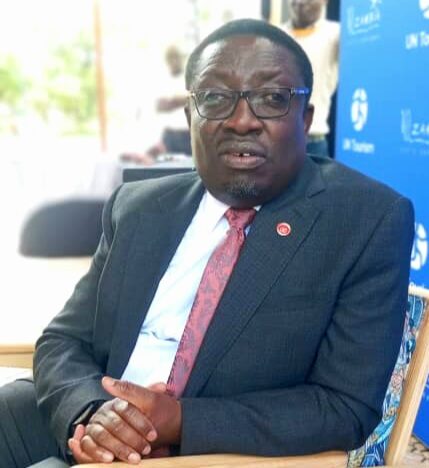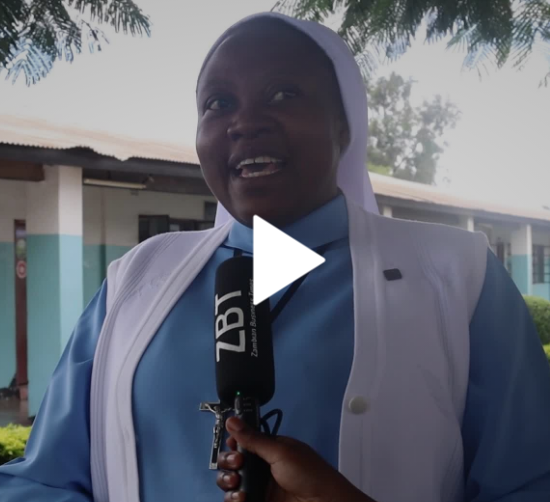
An education expert and founder of Great North Road Academy has questioned the pronouncement by the Ministry of General Education to abolish grade seven examinations (G7), stating that no proper study or background report has been availed to fully explain the action.
Speaking in an exclusive interview with Zambian Business Times – ZBT, Great North Road Academy Director Dr. Rozious Siatwambo questioned the rationale behind the abolishing of grade seven exams, stating that is a wrong move because there were no proper on the ground preparations done.
“In some Countries, our friends have what we call the Psychometrics test specifically to identify the abilities and strength for the learners, like which areas are the learners strong. Through these Psychometrics test, you are able to tell that this child can be able to advance in academics or needs skills training, maybe at grade seven this was what we could have done instead of just abolishing these exams,”
Dr. Siatwambo stated that “am not entirely against the abolishment of Grade Seven exams, but probably the way it is being done and the timing is wrong. There where no ground preparations”. He requested that a report be availed to assure the public that there are enough spaces. “We all know for sure that there are fewer spaces in grade eight than in grade seven, the higher you go, the fewer the spaces”.
And regarding the effect on teachers, Dr. Siatwambo stated that those who are teaching in secondary schools will find themselves in a crisis were the class will have say 100 learners, so how do they handle this high number of learners?” he asked?.
He said abolishing of grade seven exams is taking the burden of teaching basic skills of reading and writing from primary school teachers to secondary school teachers who are not experts in primary education, adding that, not everyone of the 470,000 learners who has progressed to grade eight can read and write.
He said the Ministry of Education was supposed conduct enough surveys across the country on grade seven learner’s ability to read and write before abolishing the exams, because most learners from some public and rural schools cannot read and write on their own.
“The Ministry of Education was supposed to conduct surveys on learner’s ability to read and write because most learners from public schools cannot read and write. So how do we help these learners? it’s a disaster in waiting”,Dr. Siatwambo stated.
“I can foresee secondary school teachers working with a lot of pressure. You know secondary teaching is with a higher level of specialization, if am specialized say in mathematics and biology, how do I deal with learners that can not read and write?”
“Who in secondary school will be dealing with these learners who cannot read and write properly? so that is another crisis that we are yet to meet. I can assure you that the next grade nine exams after this intake will be revealing”, He questioned.
He further stated that “I am also trying to understand the idea behind the ministry of education implementing such, I know maybe the idea is with the fact that every child is intelligent in their own way and also in line with the new curriculum that recognizes the learner’s abilities such that those that are not academically gifted, they can go the skills or vacations way, but do we have a mechanism to identify those that are good at skills? those that have special talents and those that are good academically?,” he questioned.
He said the implementation of the policy has punched serious holes into our education system and we are yet to see the effects at a letter stage,” he said. The Great North Road Academy Director said the implementation should have been done gradually to create room to find ways and means to identify what modalities should be used, and also to identify the learner’s various abilities.
He added that the teacher pupil ratio in Government schools is too high compared to private schools, adding that in private schools the teacher pupil ratio is around 1 teacher to 25 pupils at primary level and at secondary level, its from 1 teacher to 35 pupils, unlike that obtains in some government schools where teacher pupil ratio is say 1 teacher to 120 pupils.
Dr. Siatwambo stated that government was supposed to test the mechanism before abolishing unlike abolish the exams then test the process of implementing. He added that the government would have first removed all that bottom-necks as implementing a new policy always comes with its own challenges.
The Ministry of General Education should have trained the teachers first on how to identify the strength and weakness of the child before implementing the policy and then when they see it work, that’s when they can be able to implement it.
Ministry of General Education permanent secretary Jobbicks Kalumba is on record to have stated that grade seven exams should be abolished because they are an unnecessary cost to Government. He said instead of the grade seven to sit for their exams, they should be subjected to continues assessment alongside the implementation of repeat policy to examination.
Kalumba had stated that “Automatic progression policy has not started now, it started like 10 years ago. He stated that what is need are continuous assessments (CA) for Grade Seven. Those who fail the CAs should repeat. He said with the continuous assessment, it would be easy for teachers to sieve children who are unable to read and write to processed to higher grades.
The General Education Permanent Secretary said allowing grade seven learners to proceed to grade eight should not be described as an academic suicide. Zambia has adequate built adequate infrastructure over the years to accommodate all the grade seven who qualified to grade eight.







